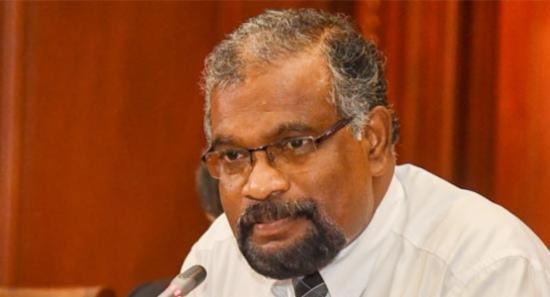.webp)
World must consider debt write-offs for low-income countries, says Sri Lanka President
In a significant address at the High-level Dialogue on Financing for Development – General Assembly, 78th session, President Ranil Wickremesinghe emphasized the critical issues facing middle-income countries in times of financial distress.
He drew attention to the challenges these countries face due to the lack of a common framework and procedures. President Wickremesinghe cited the example of Sri Lanka, where the declaration of bankruptcy had brought all external financial dealings to a standstill, potentially leading to a major political crisis.
“I would like to bring to your attention the fate of the middle income countries because there is no common framework, there is no procedure for the middle income countries. I will give an example of Sri Lanka when bankruptcy was declared, all external financial dealings came to a halt.”
However, the President also highlighted a positive development: Sri Lanka’s successful re-graduation and the assistance received from the U.S. Government in the form of fertilizer. This timely aid helped prevent another political crisis in the country. President Wickremesinghe stressed the need for a comprehensive plan to address the financial difficulties faced by middle-income countries like Sri Lanka.
Furthermore, the President discussed the global economic landscape, “This year, the projected global GDP is USD 105 trillion. Of this USD 91 trillion is the public debt. So, we are working on these assumptions. We have to use what is available to begin with. Currently, $ 100 billion is available as part of the IMF resilience and sustainability trust. In the interim, let us utilize this fund; the first step is to get the IMF resilience fund to start functioning.”
President Wickremesinghe also echoed the Secretary General’s call for annual availability of 500 billion dollars to developing countries and the conversion of short-term lending into long-term debt at lower interest rates. Additionally, the President mentioned two other proposals worth considering: the World Bank’s suggestion to ease out subsidies on fertilizer and fuel, which could free up funds for other priorities, and the WTO’s proposals on trade finance to support export expansion.
“This still has to be realized, so we must now focus on making a success of the proposal put forward by the Secretary General. I will also say while these were available, there are two other proposals that were made, one is the World Bank proposal to ease-out subsidies on fertilizer and fuel.”
While discussing these complex issues, President Wickremesinghe underscored the need to provide concrete relief for low-income countries by considering debt write-offs. He acknowledged the concerns of creditors but called for a focus on this proposal as a means of immediate relief.
“Then while we go into these issues, which will take time, we can’t rush into it, but it’s the relief that we can give to them. There I would resonate on the proposal on writing off the debt of the low-income countries. I know there are genuine concerns of the creditors which we must take into account. I would propose that we focus on it and we build on it. There has to be concrete relief available for the low-income countries. If we don’t provide that relief immediately, we can write off all the other proposals we have made.”
The High-level Dialogue, held in conjunction with the 2023 Sustainable Development Goals (SDG) Summit, brought together leaders from government, the private sector, civil society, international financial institutions, academia, and other stakeholders. It served as a vital platform for discussing creative solutions to current challenges and advancing the means of implementing the 2030 Agenda for Sustainable Development.
Winding up his speech, President Wickremesinghe posed the question to the officials of the summit, “While we have heard words of solidarity, when will we witness solidarity translated into action?”
Source: PMD
Other Articles
Featured News





.png )

-776075_550x300.jpg)






-775770_550x300.jpg)
-775764_550x300.jpg)


















.gif)